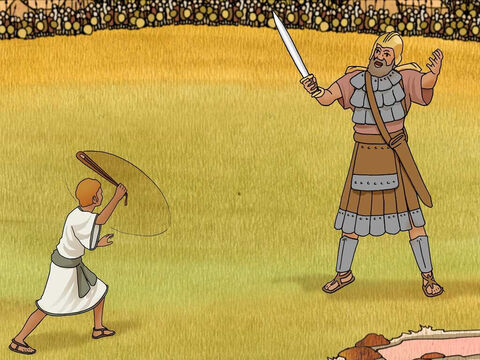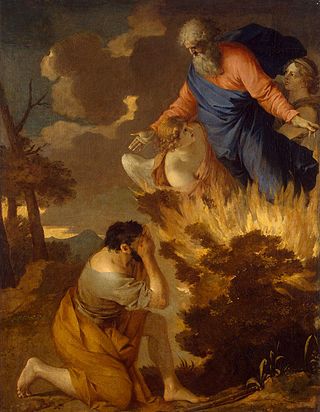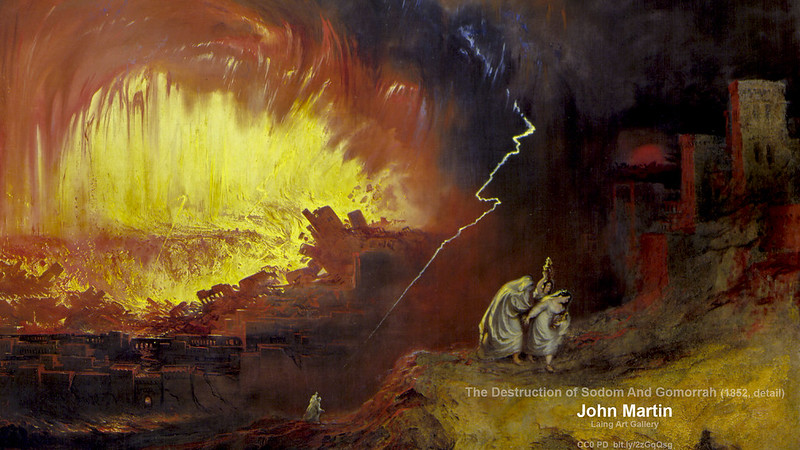Summary: Reuben's lamentation, then, at seeing the empty pit without any clue for Joseph's whereabouts: ''The boy is gone, and I, where can I turn?'' might just as well be a call not to let the child in us leave us later on in life.
![[Pictured: Yosef's sale. The picture is a screenshot from a YouTube video: Narrative culture - Yosef's sale]](https://www.xn--7dbl2a.com/wp-content/uploads/2019/04/מכירת-יוסף-1024x576.jpg)
[For articles on the “Sabbath of Vayeshev" in Hebrew, click here]

Rabbi Dr. Yossi Feintuch was born in Afula and holds a Ph.D. in American history from Emory University in Atlanta. He taught American history at Ben-Gurion University.
Author of the book US Policy on Jerusalem.
He is the rabbi of Congregation Shalom Bayit in Bend, Oregon.
* * *
As we read in this weekly Torah portion Vayeshev, when Reuben, Jacob's eldest son, returns to the pit into which Joseph was cast at his suggestion, he is devastated to find out that the pit was empty. During Reuben's temporary absence from the scene at Dothan, Joseph was brought out of the pit, whether by his other brothers and sold to the Ishmaelites, or by the Midianites who themselves sold Joseph to the Ishmaelites, even as the brothers were unaware of this chain of events.
Still, it is Reuben, the presumptive responsible adult among his brothers who would have to explain to father Jacob in Qiryat Arba about Joseph's mysterious disappearance. Agonized over his unenviable position Reuben renders his clothes and laments to his brothers: "The boy is gone! And I -- where am I to go?" (Genesis 37: 30).

Reuben's exclamation removed from its literary context may be understood for didactic purposes through a different prism. Reuben, then, might rather be tormented over the loss of the boy in him; that he no longer possessed the positive and sanguine characteristics of a young child, and as such he is at a loss; his tormented call summons us all to keep and preserve the child in us.
Indeed, the Torah and the Bible do present us with an array of individuals that haven't lost their positive child's characteristics in them. Children are incredibly curious while many adults lack curiosity and consequently have a compromised quest for the unknown, diminished creativity, and stalled imagination. The Woman in the Garden of Bliss exhibited a salubrious curiosity when she took her time to gaze at the Forbidden (for eating, that is) Fruit, finding it ''pleasing to the eye, and also desirable for gaining wisdom''. She then held it in her hand and the touch must have been even more pleasing to her than merely looking at the fruit. Driven by her curiosity about the unique look and touching sensations of the fruit, ''she took some and ate it'' before offering it to her willing partner as well. Without doing so we might still be in the Garden, wearing no clothes and making no preparations -- NASA that is -- to land humans on Mars in a decade or so (i.e., in the 2030's), or without the promise of energy from fusion ignition. It is the woman who was just created from Adam's side who possessed the child-like curiosity to try out the fruit and chart a new course for the human race.

some and ate it'' before offering it to her willing partner as well.... Image free to use at CC BY 2.0 level, uploaded by MarCuesBo to FIXABAY]
Kids' propensity to get excited about a lot of things that if preserved by adults would bring enduring energy in their workplace, organizations, and to the pursuance of their goals might be seen in Jethro's utter excitement upon hearing from Moses about the events in Egypt that led to the Exodus and to the survival of Israel at the Sea of Reed. Jubilant, Jethro coined a few unprecedented phrases that demonstrated how this old man that had experienced life in fullness could still get excited, rather than going through the motions to pass time. In saying excitedly: "Blessed be Adnoai... [so] now I know: 'yes, Adonai is greater than all gods' '' (Exodus 18: 10, 11) Jethro ignited in himself the passion for life that children are wont to possess.
Children have strong ideas and faith in their gut feeling about what they want to be when they grow up; many adults no longer possess such a strong faith in their childhood goals; the complexities of life foil it. The young shepherd David exhibits the faith of a child in his hewn skills and confident mindset when he convinces King Saul that he was the right warrior to face off the giant Goliath in a duel that would determine whether Israel would be subordinated to the Philistines. Though King Saul initially dismissed David's volunteering himself to do battle with Goiath, David, having faith in his own courage and capability to beat the giant, told Saul about his gutsy exploits in the grazing fields of Bethlehem vis-a-vis predators such as the lion and the bear. The young lad David had the faith that he could make Goliath meet the fate of the predator animals that he had triumphed over, whilst no seasoned adult warrior in King Saul's army possessed such faith in himself, even as Goliath challenged the God of Israel in proposing such a duel.

Children rely on their parents for their well-being and therefore trust them fully. Many adults do not allow themselves to trust others and accord them a place in their life. Abram in his mid-80's had already resigned himself to being childless and to the realization that his heir would be no other than his loyal servant, Eliezer, rather than a child of his own. Yet, God keeps assuring him that against all odds (with Sara being well beyond her reproductive years), he, Abram, will have his own child to succeed him. Rather than be skeptical, cynical, and rankled, Abram ''trusted in Adonai who [in turn] discerned [Abram's trust] as a righteous merit on his part'' (Genesis 15:6). The trusting child in Abram was well manifested and, in a hindsight, justified. This trust in a happy end against all odds will be demonstrated de novo when Abraham placed his son Isaac on the altar but trusted that Isaac will live.
Children are prone to be frequently amazed, entranced by the simplest things and sceneries. Adults lose touch with the wonder of nature, even as the Psalmist calls out to humans to notice God's glory in the heavens above and on the earth below. Moses on the Mountain of God where he grazed flocks demonstrated how he did not lose sight of the wonder upon seeing a wondrous scene, a green burning bush that was not consumed by the fire that it had caught. Indeed, a scrub fire sight was not really foreign to desert pasturelands; at certain times of the year, it is not an unusual phenomenon for a dry thistle to catch fire. And though it was seemingly a natural scene Moses continued to gaze at the ordinary sight, even getting closer to the bush on fire out of a sense of wonder, which he hadn't yet recognized as a miraculous divine manifestation. The octogenarian Moses was endowed by a healthy sense of wonder, as that trademark of childhood was vibrant in him.

Children are automatic observers of the double prohibition set by the Torah against bearing a grudge or taking revenge if only because they let adverse things go, rather than dwell on problems, past pains, or disappointments. Esau -- despite being enigmatically portrayed as an anathema in the rabbinic literature -- seems to model that characteristic. Though Jacob stole his birthright through deception, Esau never shows any anger toward his mother who finagled his loss of the blessing, nor does he ask his father to rescind his blessing to Jacob when the father found out what his son did to him. And then Esau suffices with a secondary paternal blessing. Esau shows no anger, let alone violence towards Jacob, who nevertheless flees from him only to return home two decades later. But Esau welcomes him lovingly and emotionally and even cedes the land of Canaan to Jacob showing all in all a ''short memory'' to his being wronged by him.
Finally, Kids are paragons of persistence and do not easily concede their objectives; they simply do not take a ''no'' for an answer and will stubbornly strive to talk their parents out of their original nay. Or as one observer put it children ''can deal with objections and rejections better than a top professional.'' In his prolonged and persistent dialogue with God over the doomsday fate of Sodom Abraham wanted to spare the-fated-for-ruination city by inquiring with God whether fifty innocent residents there would save Sodom from its collective punishment. When God replies in the affirmative Abraham lowers his wager to forty-five. When God accedes again, Abraham tries for forty, and then he goes for thirty, twenty and ten. Abraham's persistence is another component in his character that shows that he had not given up the child in him.

Reuben's lamentation, then, at seeing the empty pit without any clue for Joseph's whereabouts: ''The boy is gone, and I, where can I turn?'' might just as well be a call not to let the child in us leave us later on in life.
[For articles on the “Sabbath of Vayeshev" in Hebrew, click here]
מצאת טעות בכתבה? הבחנת בהפרה של זכויות יוצרים? נתקלת בדבר מה שאיננו ראוי? אנא, דווח לנו!


